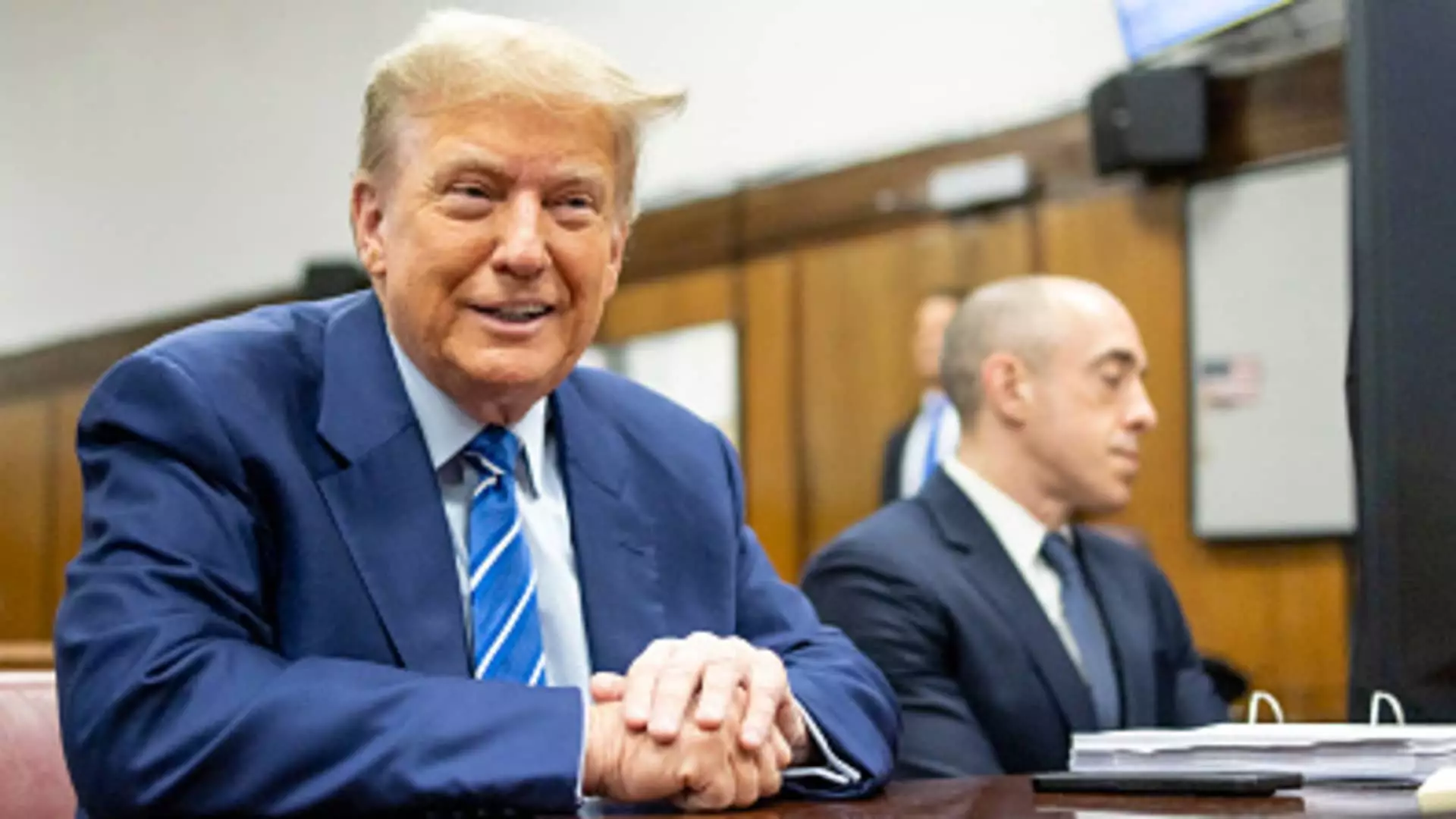In a significant turn of events, a New York judge has indefinitely postponed the sentencing of President-elect Donald Trump in connection with a high-profile criminal case involving hush money payments. This decision, delivered by Judge Juan Merchan, allows Trump’s legal team to file motions aimed at dismissing the case, which originally saw Trump convicted on 34 counts of falsifying business records. The ruling halts the sentencing that was originally scheduled for the upcoming Tuesday, marking yet another chapter in the ongoing legal saga surrounding Trump.
The Manhattan District Attorney’s Office, which has been pursuing this case, requested the postponement to provide Trump’s attorneys ample time to argue for dismissal. However, it’s worth noting that while the DA’s office supports the delay, they firmly oppose any attempts to dismiss the case outright. This duality highlights the contentious nature of this legal battle, as both sides prep for an intense fight in court.
Trump’s defense, comprising notable lawyers like Todd Blanche—who recently garnered attention for his appointment as the No. 2 official at the Department of Justice—stridently claims that the case should be discarded immediately. They assert a legal principle akin to presidential immunity, arguing that just as a sitting president enjoys protection from criminal prosecution, the same should apply to Trump in his capacity as President-elect. This defense strategy also raises broader questions about the legal boundaries of presidential power and accountability.
Blanche, alongside fellow attorney Emil Bove, articulated their position in a letter to the court, stating the case against Trump is baseless. Following this development, Trump’s spokesperson described the ruling as a “decisive win,” framing it as a significant victory for Trump’s legal posture amidst what they refer to as “sham lawfare attacks.” This framing is indicative of the political styling that permeates Trump’s defense, as it seeks to resonate with his supporters and frame the legal proceedings as politically motivated.
At the heart of this legal conundrum lies the actions of Trump’s former attorney, Michael Cohen, who orchestrated a $130,000 payment to adult film star Stormy Daniels. This payment was allegedly made to prevent Daniels from publicly discussing an alleged extramarital relationship with Trump prior to the 2016 presidential election. Trump has consistently denied any sexual involvement with Daniels and has characterized the prosecution as a politically driven maneuver.
The context of the case offers deeper insight into the complicated relationship between politics and the judiciary, particularly regarding a figure as polarizing as Trump. The findings of the jury, which convicted Trump on all counts in May, indicate a consensus on the fraudulent activities at play, but the political ramifications of such a conviction cannot be overstated. As an unprecedented event in American political history, the outcomes of this case may set significant precedents for future leaders.
The postponement of Trump’s sentencing has broader implications, particularly with respect to his recent electoral victory. Following Trump’s win against Vice President Kamala Harris on November 5, the fate of several other legal challenges he faces becomes even more pertinent. Notably, two federal cases alleging Trump’s attempts to overturn the 2020 election results, as well as mishandling classified documents, appear poised to be shelved before he takes office again.
These pending cases not only underline the interconnections between legal accountability and political power but also highlight the fragility of the legal institutions at play. The expectation that the special counsel leading these federal cases might resign before Trump can take action to dismiss them adds yet another layer of complexity to an already convoluted scenario.
Moreover, another state-level criminal case stemming from Georgia also remains in limbo, illustrating the persistence of legal challenges that could occupy Trump for years to come. The culmination of these events raises critical questions about the future of America’s legal and political landscape as the nation grapples with accountability for public figures.
The indefinite postponement of Trump’s sentencing related to the hush money case not only prolongs the tension surrounding his legal battles but also stresses the broader implications for political accountability in the United States. As developments unfold, the intricate interplay of law, politics, and public perception will undoubtedly shape the narrative in the months and years ahead.


Leave a Reply